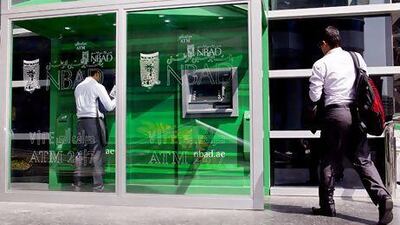Soaring investor demand for UAE and Arabian Gulf sukuk shows little sign of abating as the region heads for its most active year of bond sales on record.
National Bank of Abu Dhabi said this weekend that it had raised 500 million Malaysian ringgit (Dh600.3m) through a sale of subordinated Islamic bonds, the latest in a string of debt sales aimed at Asian investors. The 15-year sukuk was priced with a coupon of 4.75 per cent following strong investor demand, said the bank.
"This new issue, which also strengthens NBAD's capital levels, reflects the commitment of NBAD to create a yield curve in [ringgit] to meet the strong investor demand for our credit and fits in very well with our core strategy of diversifying the bank's funding sources and extending our maturity profile," said Stephen Jordan, NBAD's group treasurer.
The bond was managed by HSBC Amanah, Maybank Investment Bank, Standard Chartered Saadiq, and NBAD Malaysia, itself a recently established subsidiary of NBAD.
The coupon compares with a current yield of 2.03 per cent on NBAD's so-called samurai bonds, which are bonds denominated in the Japanese yen, launched last year and also aimed at Asian institutional investors. The securities also have a 15-year tenor.
Bond yields move in the opposite direction from price.
It was the first time that a foreign company sold subordinated debt in Malaysia, which ranks below other debts and provides repayment only after senior bondholders have been made whole. Because such debts are perceived to be riskier, they provide a higher return to yield-hungry investors.
The sale comes as UAE banks meet greater international demand for bond sales, such that even debt instruments without a track record in the region are drawing record order books.
Emirates NBD launched the Middle East's first Chinese yuan-denominated bondin March this year, while Abu Dhabi Islamic Bank has also dabbled in sales of more sophisticated credit.
The Sharia-compliant lender raised US$1 billion (Dh3.67bn) this month through the sale of a perpetual Tier 1 sukuk - an "equity-like" debt instrument - in a sale that was more than 30 times oversubscribed, with Asian private banks and asset managers accounting for the majority of sales.
The Islamic bond will help ADIB to meet its capital requirements under the new Basel III liquidity rules.
Gulf sukuk sales this year have totalled $20.2bn, making it the most active year on record for issuances of new Islamic debt.
That has pushed regional debt sales - including both conventional and Islamic bonds - to $34.1bn this year, putting it on track to top 2009's record of $36bn.
Compared with other emerging markets such as Latin America, where default rates have remained high throughout the financial crisis, efforts taken to proactively manage bonds and sukuk have resulted in greater investor confidence for fund managers trading UAE debt, said Dilawer Farazi, a fixed-income portfolio manager at InvestAD.
"Bondholders have been looked after," he said. "These actions this year have changed the way that international investors are looking to the region."
A $500m bond sold by Dubai Holding Commercial Operations Group was repaid in full, while $3.25bn worth of sukuk sold by Jebel Ali Free Zone Authority and DIFC Investments was refinanced during the summer. The three were viewed as among the most challenging maturities that regional investors would face this year.
Bond markets have continued to draw strong demand despite the high-profile debt troubles of Dana Gas, which missed a sukuk repayment at the end of last month. The Sharjah-based energy company, in talks over restructuring its sukuk with creditors, became the first company in the UAE's history to fail to repay a bond on maturity.
Standard & Poor's said in September that it expected the global market for Islamic finance to double during the next three years to $2.6 trillion.

